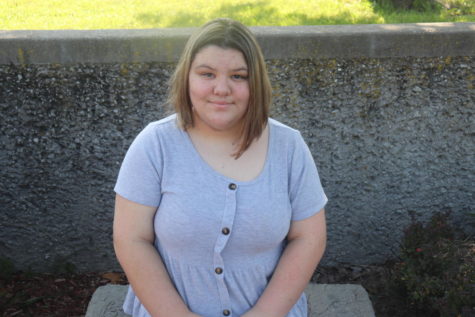ISS is losing edge as serious punishment
In School Suspension has been the number one form of punishment since the late 1960s. In School Suspension or in other words “ISS” is a form of punishment notoriously known for taking a student out of his or her classroom and placing them in a separate room on campus with adult supervision. This is still the most common form of punishment at WHS, but I would argue that it is a punishment that is outdated and that doesn’t work for everyone.
The whole ISS is meant to be a terrifying punishment for breaking school rules. Students get ISS for various reasons, including vaping, class disruption, disrespect and insubordination, skipping class, etc. Students are supposed to be so scared of ISS they don’t break the rules. The thing is, some students are still breaking the rules and some of them do it on purpose. ISS is a punishment some students desire, which seems bazaar. Why would a student want to get in trouble on purpose just to be able to take advantage of the punishment?
One reason frequently cited is getting work done.
“I often hear students say they don’t do much in class, and they get more work done in ISS,” freshman Haylee Cobb said.
When these students who don’t care to respect their teachers during class are sent to iss they simply don’t care. They’ll post about it on social media or joke about it with their friends.
“Boo-hoo I still get to do my work. just a few days out of class, ISS isn’t really a punishment, you just sit in a room, ” freshman Landon Walch said.
“I would rather be in ISS than actual school,” freshman Hazel Thompson said.
“I feel relieved and relaxed, it’s pretty quiet in ISS and no one bothers you,” said Walch.
Some of these students complain about how they don’t have enough time to work in class or how they just can’t focus in class, but in reality the students who are saying these excuses are the reason many students fall behind in class. The crazy part is the students who are often going to ISS are usually the distraction in the classroom preventing students from getting work done.
In addition to being rewarded with more time to do school work, students who frequent ISS don’t seem to take it as a serious punishment to reflect on their behavior. They’ll post about it on social media or joke about it with their friends.
However, other students say the threat of the ISS is a serious punishment that they take seriously.
“I feel disappointed in myself because I messed up” freshman Maddie Lawrence said.
I often hear students being praised for going to ISS, and that bothers me. News flash, ISS is a punishment for bad behavior. So why aren’t these students understanding that ISS is a punishment and changing their behavior?
The solution to this problem is not simple. First, perhaps students who need extra class time for work should be placed in an actual study hall, not ISS. This is not a simple thing because it involves scheduling issues, but a study hall where these educational issues are the focus might be a better place than ISS.
Second, perhaps ISS should be a place where student behaviors are addressed and changed, and not just punished. The problem is that the students are not learning their lesson, if they learn anything at all, they learn they can sit in a room and get to finish school work while still having connections to the outside world.
According to an EdSource article “In-school suspensions the answer to school discipline? Not necessarily, experts say” from October 29, 2019, the goal of ISS should be to address the behavior problem.
“The goal should be to get to the root of the problem and get kids back in class as soon as possible. What’s counterproductive is if kids are sent to sit in a room with someone who’s just there to babysit and they’re not getting any support,” said Daniel Losen, director of the Center for Civil Rights Remedies at UCLA’s Civil Rights Project, which analyzes racial inequities in public education.
According to the EdSource article, some schools have actually focused on providing in-school suspension programs that include counseling, academic help and restorative justice practices, in which students talk with other students about their disruptive behavior, its causes and consequences. This might require more training and the presence of a counselor in ISS, but this might go farther to addressing the behavior issues, rather than just using a punishment that really isn’t working.
Needless to say, ISS is a much better alternative than sending a student home for OSS, but something needs to be done for ISS to be considered a more serious punishment focused on changing student behavior, rather than just a study hall.

Freshman Ariel Harrington-Plaster is a new member of The Wildcat staff. This is her first year serving as a staff writer. She is involved in the speech...





